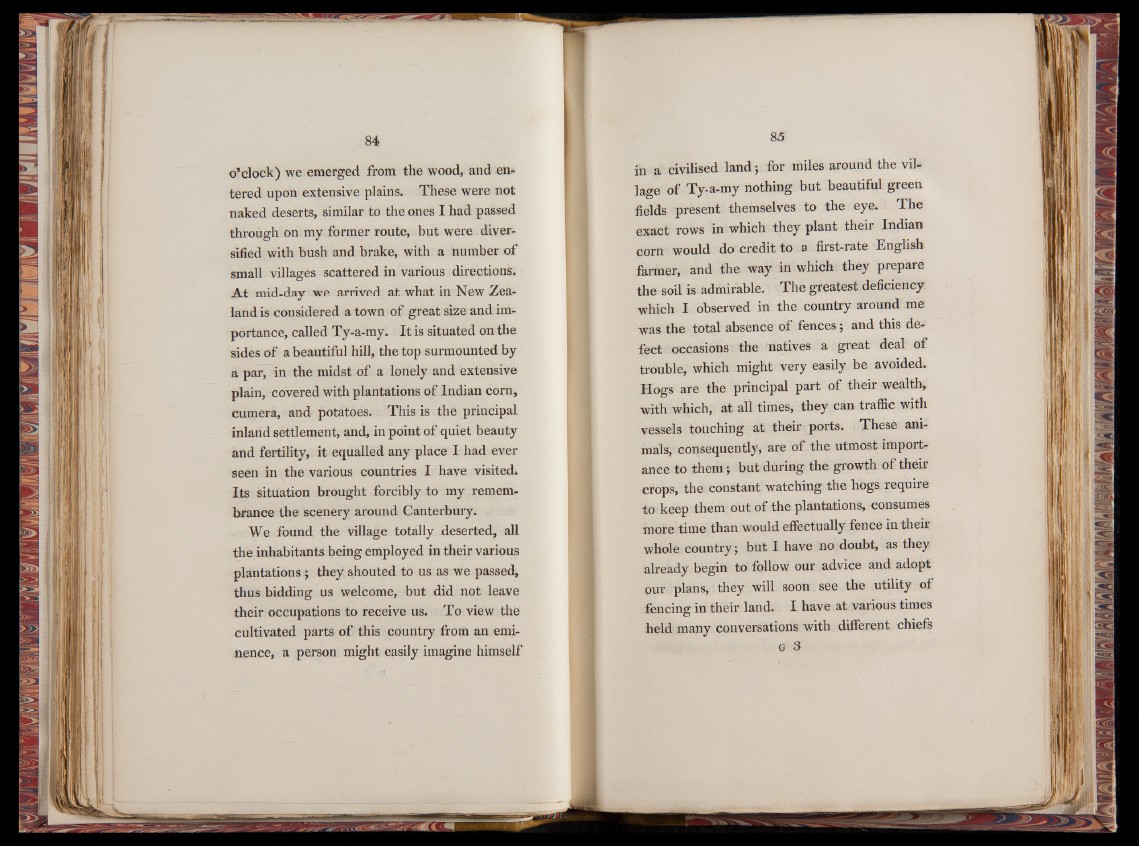
o’clock) we emerged from the wood, and entered
upon extensive plains. These were not
naked deserts, similar to the ones I had passed
through on my former route, but were diversified
with bush and brake, with a number of
small villages scattered in various directions.
At mid-day we arrived at what in New Zealand
is considered a town of great size and importance,
called Ty-a-my. It is situated on the
sides of a beautiful hill, the top surmounted by
a par, in the midst of a lonely and extensive
plain, covered with plantations of Indian corn,
cumera, and potatoes. This is the principal
inland settlement, and, in point of quiet beauty
and fertility, it equalled any place I had ever
seen in the various countries I have visited.
Its situation brought forcibly to my remembrance
the scenery around Canterbury.
We found the village totally deserted, all
the inhabitants being employed in their various
plantations; they shouted to us as we passed,
thus bidding us welcome, but did not leave
their occupations to receive us. To view the
cultivated parts of this country from an eminence,
a person might easily imagine himself
in a civilised land; for miles around the village
of Ty-a-my nothing but beautiful green
fields present themselves to the eye. The
exact rows in which they plant their Indian
corn would do credit to a first-rate English
farmer, and the way in which they prepare
the soil is admirable. The greatest deficiency
which I observed in the country around me
was the total absence of fences; and this defect
occasions the natives a great deal of
trouble, which might very easily be avoided.
Hogs are the principal part of their wealth»
with which, at all times, they can traffic with
vessels touching at their ports. These animals,
consequently, are of the utmost importance
to them ; but during the growth of their
crops, the constant watching the hogs require
to keep them out of the plantations, consumes
more time than would effectually fence in their
whole country; but I have no doubt, as they
already begin to follow our advice and adopt
pur plans, they will soon see the utility of
fencing in their land. I have at various times
held many conversations with different chiefs
g 3